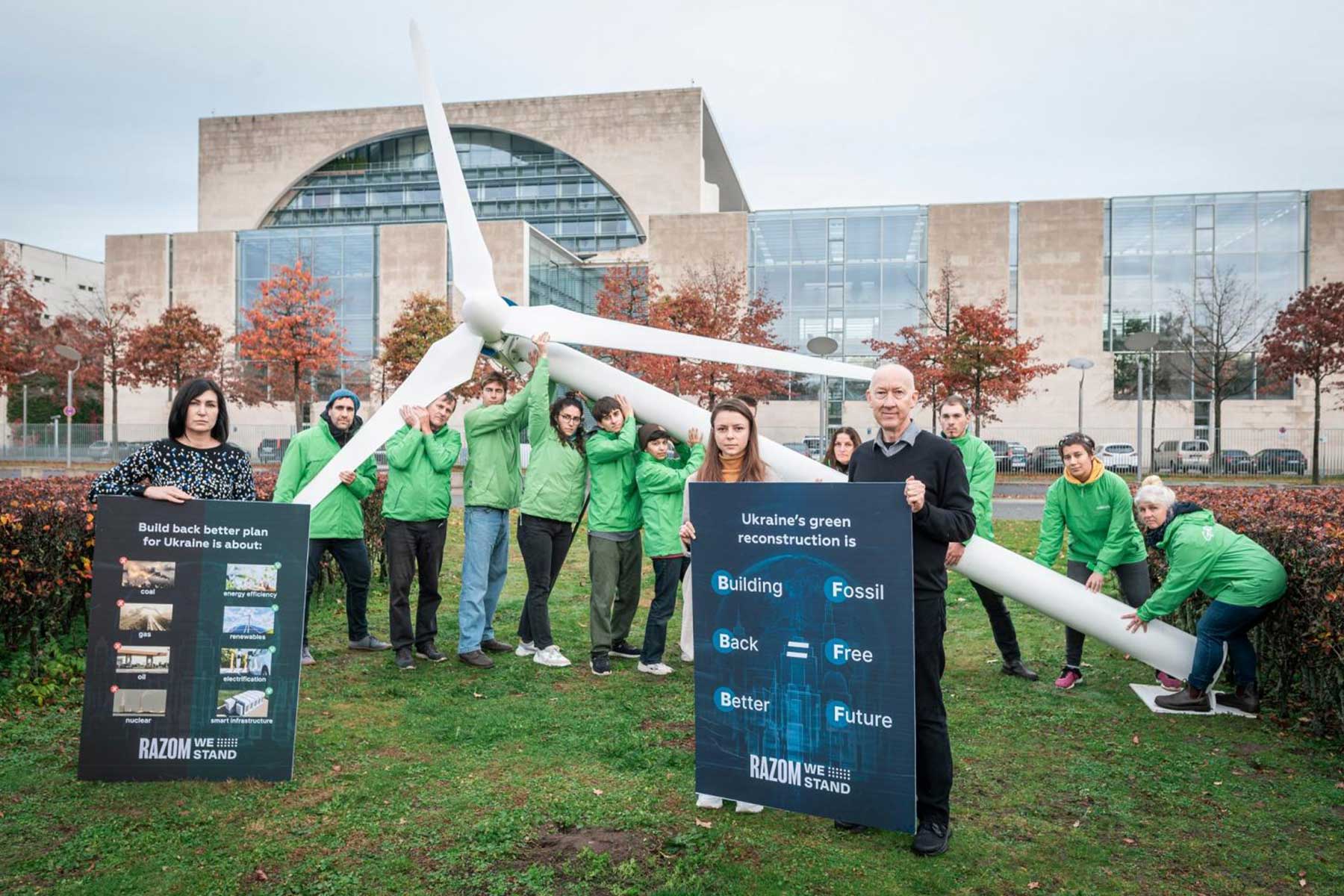Today, Bankwatch together with Ecoaction and Razom We Stand submitted initial comments to the European Commission, urging the integration of the Partnership Principle and environmental conditionality in the legislation on Ukraine Facility.
The proposed Ukraine Facility, slated to be the EU’s financing instrument for providing modernisation and recovery support to Ukraine from 2024 to 2027, represents a crucial opportunity to foster green reconstruction and pave the path for Ukraine’s accession to the EU. Recognising the significance of this initiative, the civil society representatives have highlighted the need to draw upon the best practices from existing EU instruments, such as the Recovery and Resilience Facility.
At the heart of the civil society recommendations lies the call for thorough integration of the European Code of Conduct on Partnership, a set of standards proven to be effective in promoting public participation and engagement. Civil society is best placed to provide the checks and balances for planning, implementing, monitoring and evaluating the reconstruction of Ukraine. Thus, involvement of civil society from the earliest stages is crucial, especially in light of the weakened public consultations amidst martial law in Ukraine.
Olga Polunina, Executive Director of Ecoaction, says: ‘Now it is important to understand what exactly will be included in the Ukraine Plan mentioned in Chapter III of the Ukraine Facility proposal, and how civil society will be involved in the development of this Plan. The inclusive and transparent development approach means that consultations should be held not only with business associations and entities, but also with civil society. Previous attempts to develop a Ukraine Recovery Plan showed that we may expect certain issues with this inclusiveness. And it is also important that this Plan and this Ukraine Facility instrument ensures implementation of environmental standards during reconstruction as some of them, such as EIA and SEA, were suspended and simplified for reconstruction works and plans. These are key expectations of Ukrainian environmental NGOs from this Regulation.’
Svitlana Romanko, Founder and Director of Razom We Stand, says: ‘A clean energy based post-war rebuilding of Ukraine’s economy, in line with EU climate goals, saves money in the long-term and would help Ukraine to eliminate its dependence on fossil fuel imports. It is very important for Ukraine to adopt a green taxonomy, because every euro invested should bring Ukraine closer to energy independence and economic vitality, and to meet goals for the development of clean energy in accordance with the European Green Deal, Paris Agreement, RePower EU Plan, and other EU policies and international agreements. Only in this way can Ukraine become a shining-light beacon of success that can inspire the world towards a peaceful and climate-friendly future.’
Valeriya Izhyk, EU policy officer at CEE Bankwatch Network, says: ‘Ukrainian civil society is faced with the unprecedented challenge of having to balance urgent war-related action with well thought-out strategic planning for EU accession. The Ukraine Plan is urgently needed for the country to meet this challenge head on. The European Code of Conduct on Partnership can bring structure to this dual objective by providing civil society with an effective tool to leverage progress. The Code sets out the membership criteria and procedures for monitoring committees, the bodies that will oversee the implementation of the Ukraine Plan’s operational programmes once they have been approved. This is exactly the type of governance architecture we need to ensure national ownership of the Ukraine Plan.’
Despite the Facility’s stated objective of aligning Ukraine with the European Green Deal and supporting the country’s green transition, the proposal lacks the minimum requirements for environmental sustainability and fails to specify a climate expenditure target. The Facility should not undermine any other EU legislation with which Ukraine is expected to comply. This includes the country’s obligation to apply provisions in the EU’s Regulation on the Governance of the Energy Union and Climate Action to the development of its National Energy and Climate Plan in a transparent and participatory manner. The representatives emphasised the urgency of incorporating such conditionalities, milestones and targets into the new regulation. A focus on environmental considerations will not only align the Facility with the objectives of the European Green Deal, but also ensure a sustainable and resilient future for Ukraine, free from fossil fuels.
Centre for Environmental Initiatives “Ecoaction” is Ukraine’s largest environmental NGO that unites efforts of experts and activists with a goal to protect the environment and the climate. The organisation advocates for a clean energy transition, clean air for all and sustainable development of energy, transport and agriculture in Ukraine. In 2022, Ecoaction developed principles of Ukraine’s green recovery which were supported by more than 50 Ukrainian civil society organisations.
CEE Bankwatch Network is today the largest network of grassroots environmental groups in countries of central and eastern Europe and a leading force in preventing dubious public investments that harm the planet and people’s well-being in this region and beyond.
Ukrainian group Razom We Stand, founded at the beginning of russia’s full-scale war in 2022, campaigns to end the war by cutting Russia’s exports of fossil fuels, has continuously advocated for a comprehensive and fully enforced embargo on Russian fossil fuels and works towards a green rebuilding of Ukraine with clean energy, for a better climate and better future. Learn more here:

